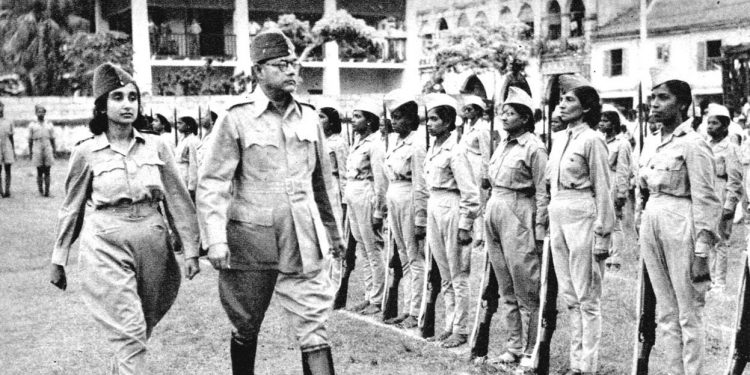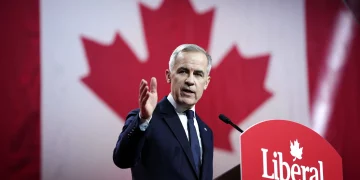Rajendra Prasad was the first President of independent India, but had the recommendations of Captain John Jacob, founder president of the INA Committee, to the Government of India been carried out, Netaji Subhas Chandra Bose, the Indian nationalist whose armed resistance hastened the British withdrawal from India, would have been the first President, claims historian Anil Dhir.
In fact, Bose’s name is mentioned as the head of state (Prime Minister) of free undivided India from October 21, 1943 to August 18, 1945 in the page on him on Wikipedia, the free online encyclopedia. The provisional government he formed was named Azad Hind Sarkar.
With the 75th anniversary of the formation of the Azad Hind government being celebrated this year, Netaji’s followers are organising a month-long Jan Sampark Yatra to create awareness about the great leader’s ideology among the people. They say that though he was a visionary patriot, Netaji never got his rightful place in Indian history.
About Azad Hind Sarkar
Netaji Subhas Chandra Bose announced the formation of the country’s first independent government – the Azad Hind government – in occupied Singapore October 21, 1943. Bose was the head of state, prime minister and minister for war, foreign affairs and supreme commander of this government. Known as Arzi Hukumat-e-Azad Hind, it was supported by the Axis powers of Japan, Nazi Germany, Italy and their allies. The declaration of the provisional government of Azad Hind provided a much-needed fillip to the freedom struggle. The provisional government guaranteed religious liberty as well as equal rights and opportunities to all its citizens. It declared that it would pursue the happiness and prosperity of the whole nation and of all its parts, cherishing all the children of the nation equally and transcending all differences cunningly fostered by an alien government in the past.
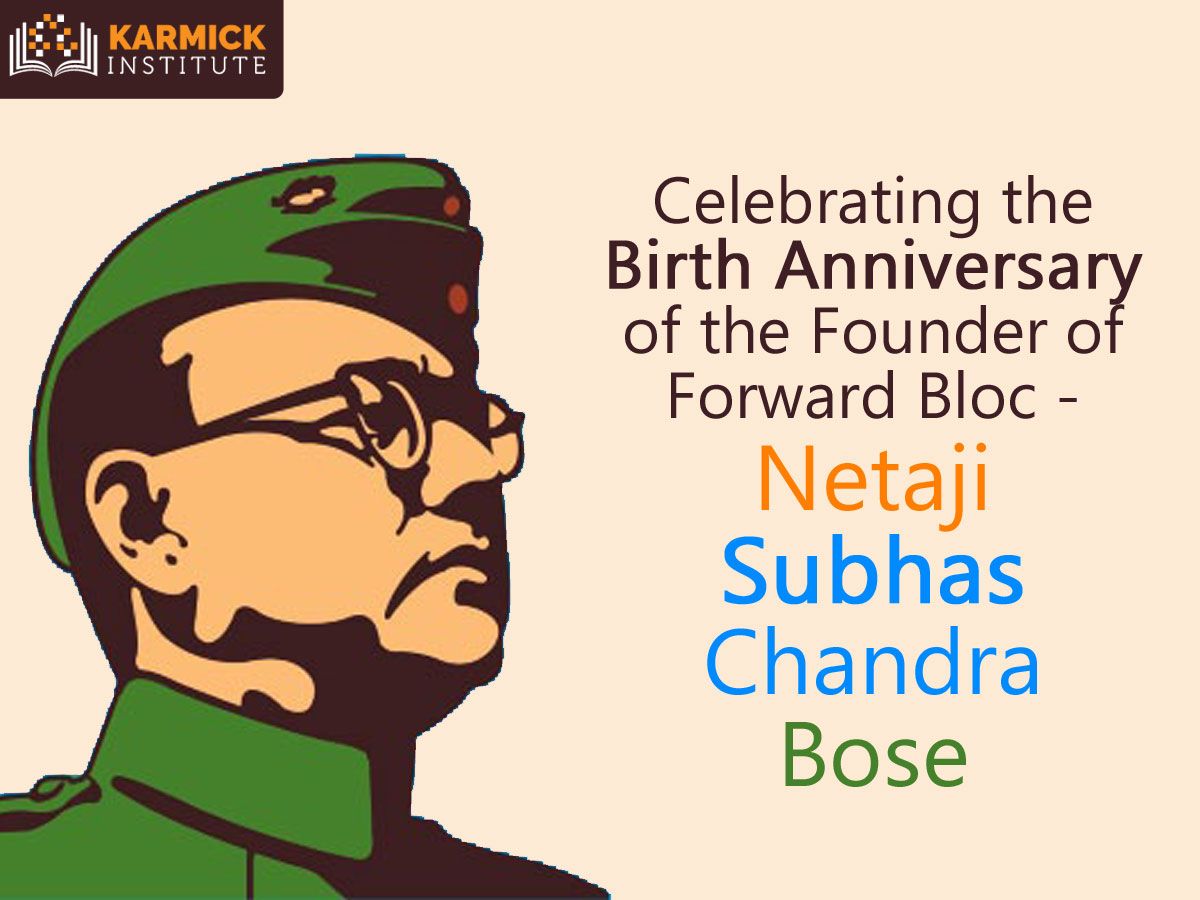 The provisional government became the symbol of India’s invincible aspiration for freedom. That aspiration was given a tangible form by the leadership and sacrifice of Netaji and his band of dedicated patriots in East Asia and elsewhere. The formation of the provisional government reminded the Indian people that the banner of India’s fight for freedom was still aloft. Subsequently, the mobilisation of Indian communities for armed struggle was stepped up. Though many years have passed since the formation of the provisional government by Netaji, and many governments have ruled independent India, Netaji’s ideology has been largely neglected. However, on the 75th anniversary of the formation of the Azad Hind government this year, people from all walks of life irrespective of caste, religion and creed have come forward to commemorate the day and pay obeisance to Netaji. The Odisha wing of All India Forward Bloc has launched a month-long rally, which began October 21, to inculcate the values and philosophy of Netaji among the people. Sunday POST met some followers of Netaji as well as historians to elicit their views on the significance of the Azad Hind Sarkar in the present day.
The provisional government became the symbol of India’s invincible aspiration for freedom. That aspiration was given a tangible form by the leadership and sacrifice of Netaji and his band of dedicated patriots in East Asia and elsewhere. The formation of the provisional government reminded the Indian people that the banner of India’s fight for freedom was still aloft. Subsequently, the mobilisation of Indian communities for armed struggle was stepped up. Though many years have passed since the formation of the provisional government by Netaji, and many governments have ruled independent India, Netaji’s ideology has been largely neglected. However, on the 75th anniversary of the formation of the Azad Hind government this year, people from all walks of life irrespective of caste, religion and creed have come forward to commemorate the day and pay obeisance to Netaji. The Odisha wing of All India Forward Bloc has launched a month-long rally, which began October 21, to inculcate the values and philosophy of Netaji among the people. Sunday POST met some followers of Netaji as well as historians to elicit their views on the significance of the Azad Hind Sarkar in the present day.
Cut to 1943
“I have said that today is the proudest day of my life. For enslaved people, there can be no greater pride, no higher honour, than to be the first soldier in the army of liberation. But this honour carries with it a corresponding responsibility and I am deeply conscious of it. I assure you that I shall be with you in darkness and in sunshine, in sorrows and in joy, in suffering and in victory. For the present, I can offer you nothing except hunger, thirst, privation, forced marches and deaths. But if you follow me in life and in death – as I am confident you will – I shall lead you to victory and freedom. It does not matter who among us will live to see India free. It is enough that India shall be free and that we shall give our all to make her free. May God now bless our army and grant us victory in the coming fight. Inquilab Zindabad! Azad Hind Zindabad!”
These were the concluding remarks of Netaji July 5, 1943 in Singapore after taking over the charge of President of the Indian Independence League from Rash Behari Bose the previous day. The speech he delivered that day was one of his greatest speeches and overwhelmed the Indian National Army (INA) gathered under the scorching sun of Singapore. Some 13,000 men drawn from the Indian people in South-East Asian countries were part of the rally. Netaji toured Thailand, Malaya, Burma, Indo-China and some other count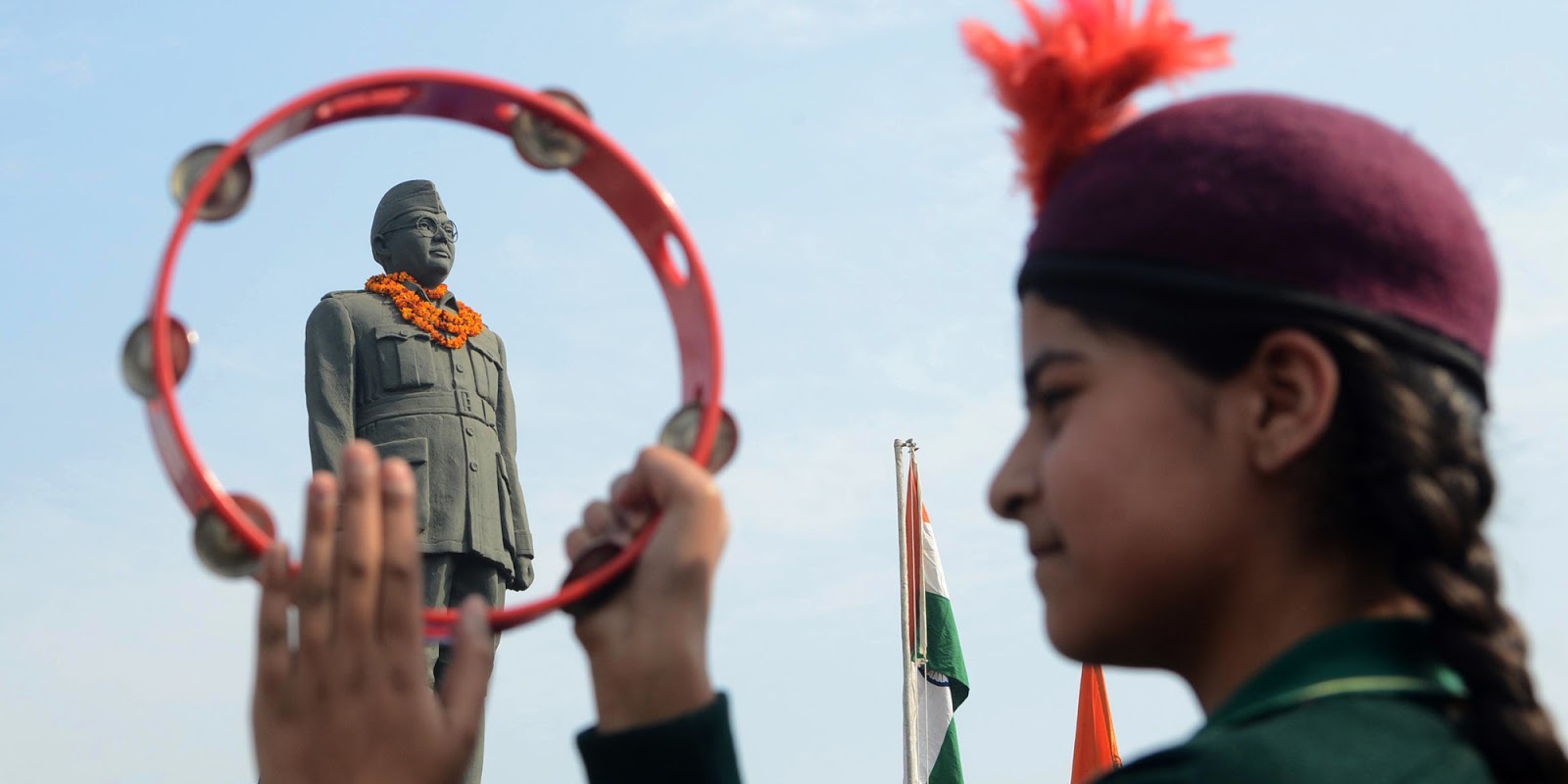 ries and inspired the civilians to join the army and mobilised public opinion for recruitment of soldiers, augmenting resources and establishing new branches of the Indian National Army. He promised the people that he would open the second war of Independence through the provisional government under whose banner three million Indians of South-East Asia would fight the enemy. He gave a clarion call to all Indians ‘Karo sab nichhabar bano sab fakir’ (sacrifice all and be penniless mendicants for the sake of the Motherland). Netaji used to deliver his fiery speeches and appeal to the masses to make donations and join the INA. After the speech, his garlands were put to auction, each garland fetching fabulous amounts such as ten or twenty thousand dollars at that time and this money was earmarked as the fund of the provisional government. People also vied with one another to hand over donations to Netaji personally.
ries and inspired the civilians to join the army and mobilised public opinion for recruitment of soldiers, augmenting resources and establishing new branches of the Indian National Army. He promised the people that he would open the second war of Independence through the provisional government under whose banner three million Indians of South-East Asia would fight the enemy. He gave a clarion call to all Indians ‘Karo sab nichhabar bano sab fakir’ (sacrifice all and be penniless mendicants for the sake of the Motherland). Netaji used to deliver his fiery speeches and appeal to the masses to make donations and join the INA. After the speech, his garlands were put to auction, each garland fetching fabulous amounts such as ten or twenty thousand dollars at that time and this money was earmarked as the fund of the provisional government. People also vied with one another to hand over donations to Netaji personally.
Netaji made a stirring appeal during the formation of the provisional government saying, “In the name of God, in the name of bygone generations who have welded the Indian people into one nation and in the name of the dead heroes who have bequeathed to us a tradition of heroism and self-sacrifice, we call upon the Indian people to rally round our banner and strike for India’s freedom. We call upon them to launch the final struggle against the British and all their allies in India and to prosecute that struggle with valour and perseverance and with full faith in final victory until the enemy is expelled from Indian soil and the Indian people are once again a Free Nation.”
At the oath-taking ceremony, which took place in an emotionally charged atmosphere, Netaji read out the oath, “In the name of God, I take this sacred oath that to Liberate India and 38 crores of my countrymen, I, Subhas Chandra Bose, will continue the sacred war of freedom till the last breath of my life …..” His voice failed as he became emotional. With difficulty, he resumed in a steady voice, “I shall always remain a servant of India and look after the welfare of 38 crores of Indian brothers and sisters. This shall be for me my highest duty. Even after winning freedom I will always be prepared to shed the last drop of my blood for the preservation of India’s freedom.”
This great freedom fighter remained committed to his oath till the end of his life. No doubt, he will remain an eternal source of inspiration and enlightenment to all.
Historian’s take

Every year, the Government of India celebrates Netaji’s formal declaration of the establishment of the Indian National Army (INA) and Provisional Government. But little else is done, says historian Anil Dhir. He shared with Sunday POST the 10 recommendations of Captain John Jacob, founder president of the INA Committee, to the Government of India. Unfortunately, none of the recommendations have been implemented by any of the governments in the last 75 years, he said:
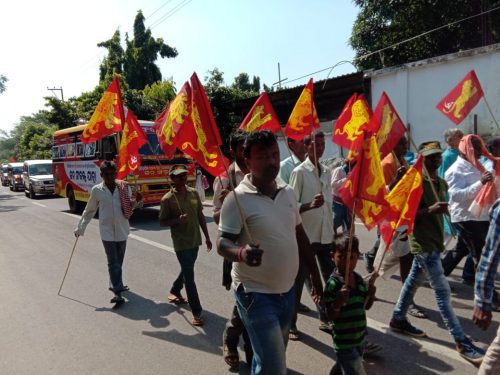
Declare Netaji as the first President of India because, on October 21, 1943, he had proclaimed the Provisional Government of Free India from exile, which drew instant recognition from nine European and Asian countries
Declare Netaji’s birthday, January 23, as a National Day
Declare “Jai Hind” as the national greeting
Include the INA National Anthem in all school and college prayers
Erect a life-size statue of Netaji in the precincts of the Red Fort
Issue permanent currency notes, coins and postage stamps of various denominations bearing the portrait of Netaji
Name at least one women’s wing in the Indian Defence Forces as Rani Jhansi Regiment as it was in the INA
Name one defence academy after Netaji
Introduce an authentic account of the INA as an integral part of modern Indian history in all educational curricula
Establish an International Netaji Research Foundation under the aegis of the Ministry of Human Resources for undertaking wide-ranging research in areas like international relations, defence and welfare economics
Criticising the state government for doing nothing to honour Odia soldiers who were in the INA and gave up everything for the sake of India’s freedom, Dhir says, “As Indians, many of us fail to realise the impact of what these freedom fighters did for us decades ago. The freedom that we take for granted today has been given to us by people who are no longer alive to tell us how they survived each day during those tough and trying times. We should remember not only those freedom fighters who are well known but also those who died in the freedom struggle without having their names in the records. Inspired by Netaji’s clarion call, as many as 18,000 Odia people had joined INA of whom 800 were killed. Many of them gave up their lives on the Burma front. Most of them were from South Odisha, having gone as indentured labourers to the plantations and railways in Malaysia, Burma and Singapore. There should be a fitting memorial to these brave Odias. Their stories should be told. Inscribed on a pillar should be the names of all the patriots, identified so far, who lost their lives fighting for the motherland. This is the least that the present generation can do to honour these brave men and women. I have written to the Chief Minister many a time in this regard, but nothing has been done so far.”
What the Netaji’s followers say

Jyoti Mohapatra, general secretary of All India Forward Bloc, says, “The provisional government of Azad Hind stood to be a government of the people, for the people and by the people. It recognised no distinctions based on caste, class, race, religion, sect or sex. One of the factors for Netaji’s creation of the Rani of Jhansi Regiment was to treat man and woman on an equal footing. Be it the UPA or NDA government, neither has lived up to the expectations of the common people. That’s why we have organised a month-long Jan Sampark Yatra to create awareness about Netaji’s ideology. We call upon youths to join the rally to make it successful. The rally which began in the state capital October 21 will culminate in Puri November 20.”
Purna Chandra Padhi, Chairman of All India Forward Bloc, is of the opinion that Bose wanted to form a democratic society where everyone had equal rights over land, water and forest. That led to the formation of INA. He came up with provisional government of Azad Hind to manage the INA. His dream of independent India came true, but his other dreams remain unfulfilled. All India Forward Bloc founded by Netaji in 1940 is now trying its best to inculcate the values of Netaji especially among the youth, he said.
He adds: “Thousands of brave men and women responded to Netaji’s call to take up arms against the British and joined INA. They gave up everything they had, their comforts, their families so that they could get India her freedom. But these soldiers and their descendants live in pitiable penury as refugees in Myanmar (formerly Burma). The fate of surviving INA soldiers is no better in India and they are leading a life of penury thanks to the indifferent attitude of governments. These people sacrificed everything to ensure that we live in a free India, does the government have no obligation to them?”
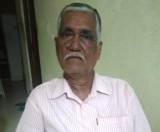
Tusarkant Satpathy, also a follower of Netaji follower and a columnist, says, “Netaji wanted every Indian irrespective of caste or creed to be treated as equals with equal rights in all respects. He wanted to unite people from different races and different religions. He was of the view that every man had full liberty to practise his religion in any way he liked. He made his soldiers realise that they were the sons of the same soil and, as such, there could be no difference between them. It is a pity that Netaji’s ideology is not being followed today. Hence, the time has come to take a stand against government’s indifferent attitude.”
Visit our E-Paper section for a read of the printed version.
PNN

